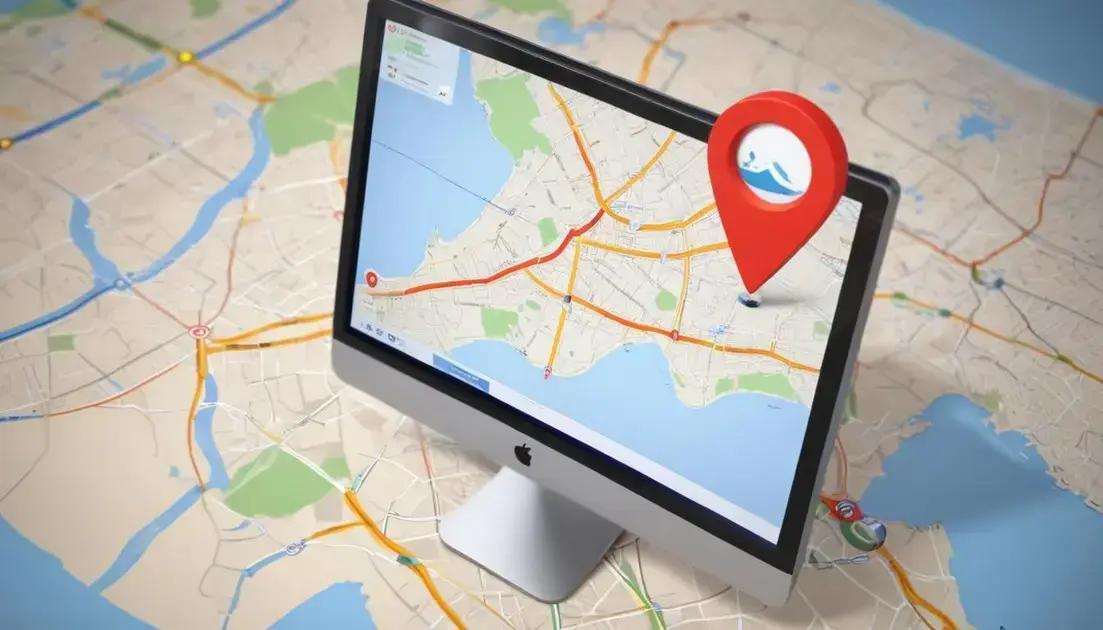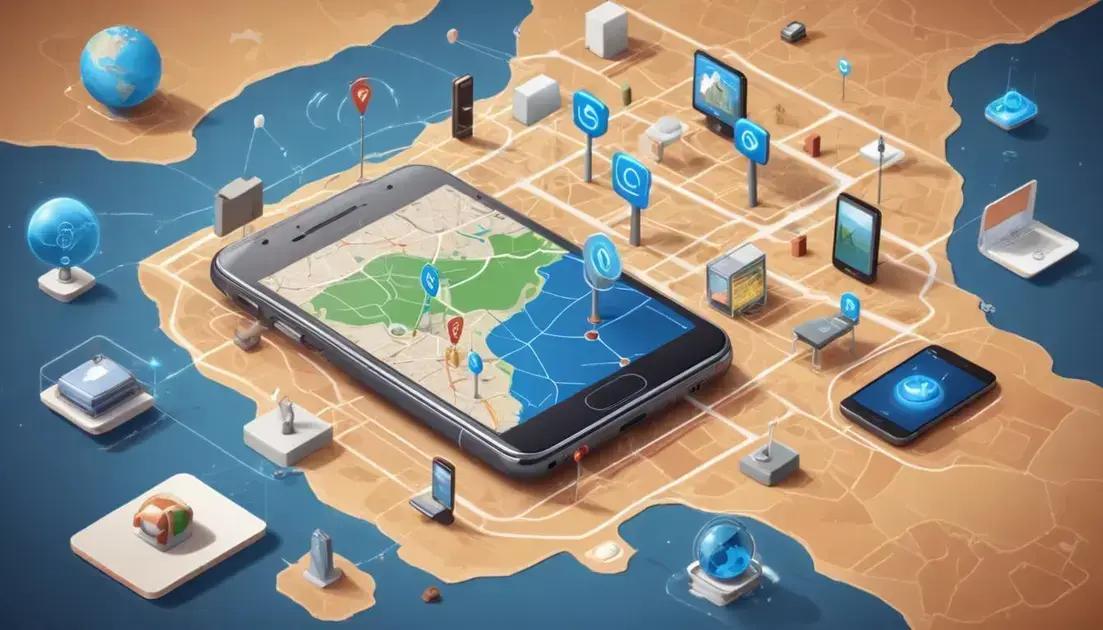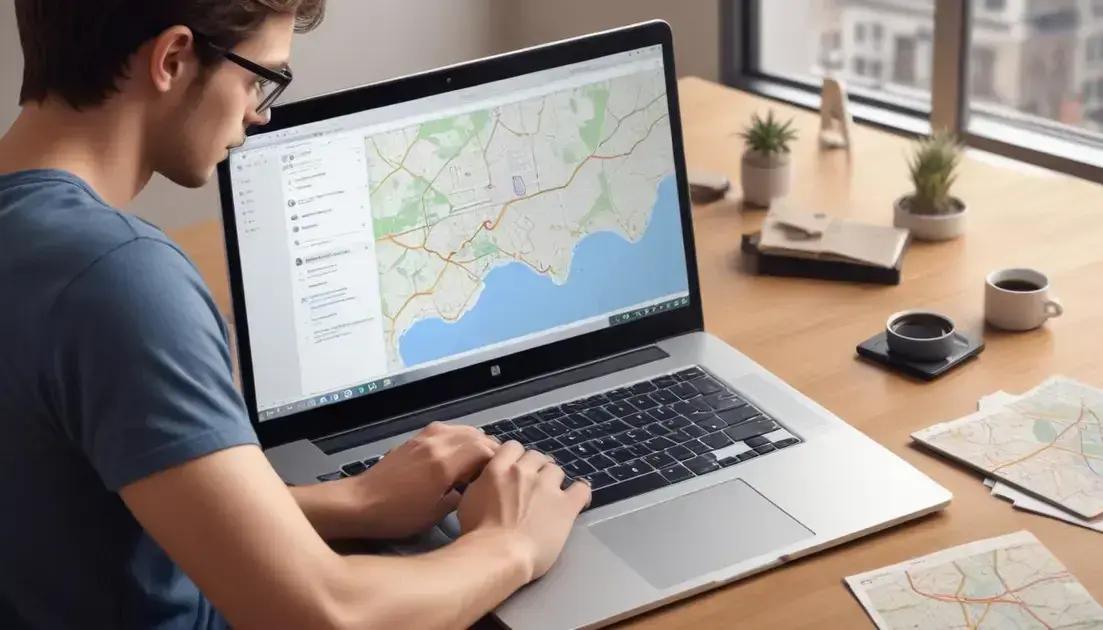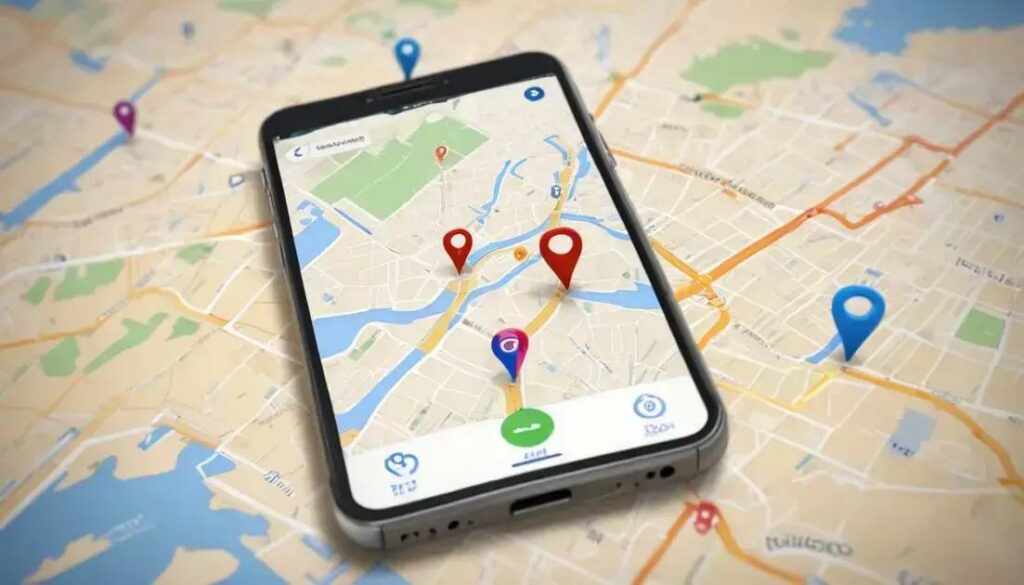Welcome to the world of location-based apps! These applications have become essential in our daily lives, helping us find everything from coffee shops to weather updates. But have you ever wondered what makes them work so seamlessly? Let’s dive in!
The Role of Address Lookup
Address lookup plays a vital role in location-based applications. It’s all about finding the right spot based on a user’s input or GPS. When you search for a coffee shop or a restaurant, address lookup helps pinpoint those places accurately on a map.
Why is Address Lookup Important?
Using correct addresses ensures that users receive the information they need without confusion. No one likes to end up in the wrong place! An accurate address also helps with navigation and enhances the overall experience when using location-based apps.
How Does It Work?
Address lookup uses something called geocoding. When you enter an address, geocoding transforms it into geographic coordinates. This means it can translate words like “123 Main St” into numbers that a map can understand.
Real-World Examples
Think about ride-sharing apps like Uber. When you order a ride, they use address lookup to know where to pick you up. This accuracy helps get you where you need to go quickly.
Enhancing User Experience
Great address lookup makes apps more user-friendly. It saves time and effort for users. If apps can customize suggestions based on your location, they become even more helpful. That’s what users want!
Conclusion
In summary, address lookup is key for location-based apps. It provides accuracy and convenience, improving the overall experience. By using this feature effectively, apps can stand out and keep users happy.
Importance of Geocoding

Geocoding is essential for location-based applications. It takes an address and turns it into geographical coordinates. This means it can pinpoint where that address is on a map.
Why Geocoding Matters
Geocoding helps users find places easily. When you search for a location, you want to see results quickly and accurately. Without geocoding, that wouldn’t happen!
How Does Geocoding Work?
When you enter an address into an app, it sends that data to a geocoding service. The service processes the address and then returns the exact location using latitude and longitude. This makes navigation smoother.
Real-World Uses of Geocoding
Think about weather apps. They use geocoding to show your local forecast. By knowing your location, they can provide the most relevant information right away.
Enhancing User Experience
Good geocoding improves user experience. It allows for quick location searches and accurate results. Users appreciate apps that understand their needs.
Tips for Effective Geocoding
For developers, ensuring your geocoding process is efficient is key. Use reliable geocoding services and test for accuracy. This will lead to a better app and happier users.
Accuracy in Location-Based Apps
Accuracy is key in location-based apps. It helps users find what they need without confusion. When an app points to the wrong location, it can lead to frustration.
Why Accuracy Matters
Accurate location data builds trust. Users expect their apps to provide real-time, correct information. Whether it’s a restaurant or an event, getting the location right is crucial.
How to Ensure Accuracy
Apps achieve accuracy through reliable data sources. Using up-to-date mapping services is essential. Regularly updating the database helps keep the information fresh.
Testing for Accuracy
It’s important to test location features often. Check how well the app displays locations and responds to user input. Quality assurance processes help catch errors early.
Real-World Examples
Think about navigation apps like Google Maps. They rely heavily on accuracy. If the app suggests a wrong turn, it can confuse drivers.
Continuous Improvement
Location-based apps should continuously gather user feedback. This feedback helps improve accuracy over time. By listening to users, developers can make the app even better.
Technologies Used in Geolocation

Geolocation relies on different technologies to work effectively. These technologies help apps find and track users’ locations. Knowing how they work is essential for building a great user experience.
GPS Technology
One of the most common technologies is GPS, or Global Positioning System. It uses satellites to pinpoint a user’s location. Most smartphones have GPS, making location accuracy very high.
Wi-Fi Positioning
Wi-Fi positioning is another useful method. It helps determine a location by using nearby Wi-Fi networks. This method works well indoors, where GPS might struggle.
Bluetooth Beacons
Bluetooth beacons are small devices that can also help with geolocation. They send signals to nearby smartphones. This is useful in shopping malls or museums, guiding users to specific areas.
Cellular Networks
Cellular triangulation uses cell towers to find devices. This method is less accurate than GPS but still valuable. It can help track locations when other methods aren’t available.
Combining Technologies
Many apps combine these technologies for better accuracy. For example, they might use GPS outdoors and switch to Wi-Fi indoors. This hybrid approach ensures users get accurate location data wherever they are.
Security and Privacy Considerations
Security and privacy are crucial when using location-based apps. Users want to know their data is safe. These apps often collect sensitive information, so keeping it protected is vital.
Why Security Matters
Strong security measures prevent unauthorized access. If hackers get into an app, they can misuse user data. This could lead to identity theft or other problems.
Protecting User Data
Encrypting data is one effective way to protect it. Encryption converts data into a code that only authorized users can read. This adds a layer of security for sensitive information.
Privacy Settings
Apps should provide clear privacy settings. Users should be able to manage what information they share. This includes location data and personal details.
Transparency is Key
Being transparent about data collection builds trust. Apps should clearly explain how they use location data. Users appreciate knowing how their information is handled.
Regular Updates
Developers must regularly update their apps to fix security vulnerabilities. Software updates often include important security patches. Staying current helps protect user data from new threats.
Practical Tips for Developers

Developers play a key role in creating effective location-based apps. Here are some practical tips to enhance their development process. These tips can improve user experience and data accuracy.
Understand Your Audience
First, know who your users are. Understanding their needs helps tailor the app to their preferences. Conduct surveys to gather user feedback and ideas.
Choose the Right APIs
Selecting the right APIs is crucial. Use reliable mapping and geolocation APIs. This ensures accurate data and better app performance.
Optimize Performance
Optimize your app for speed and efficiency. Slow apps frustrate users. Minimize loading times by streamlining code and efficiently managing data requests.
Test Thoroughly
Testing is vital before launching your app. Conduct usability tests to catch bugs and design flaws. Gathering feedback during testing can lead to valuable improvements.
Keep Data Secure
Security should always be a priority. Protect user data with encryption and secure storage. Regularly update the app to patch any vulnerabilities.
Stay Current with Trends
Finally, keep up with trends in tech and user needs. Attend workshops and follow industry news. This knowledge can inspire updates and improve app features.




